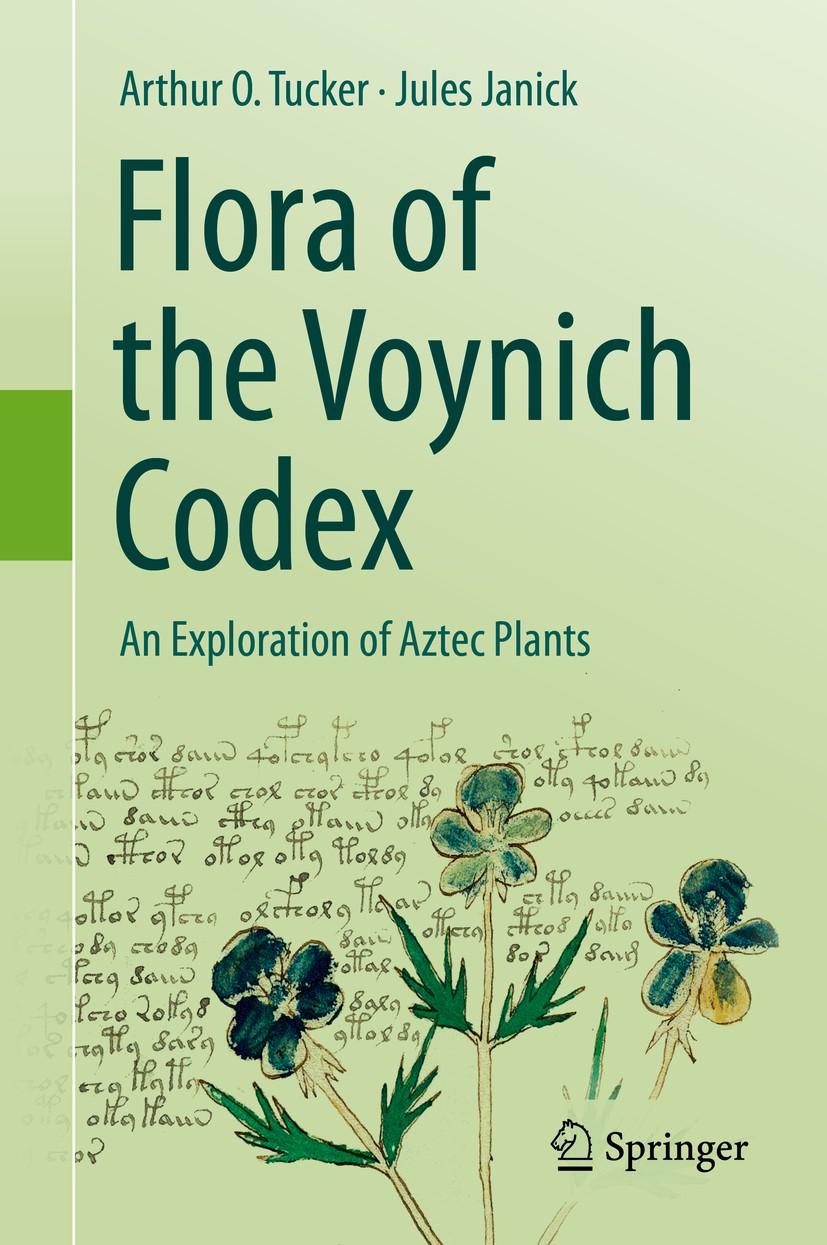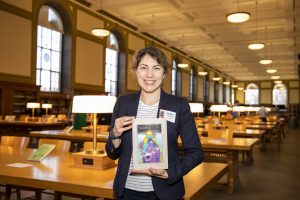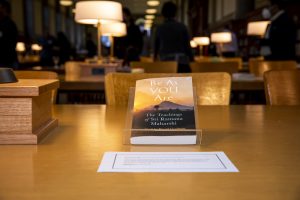Philip Anderson (Evolution, Ecology, & Behavior)
Comparative Biomechanics: Life’s Physical World by Steven Vogel
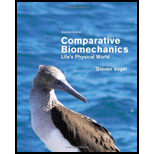
It is rare that a textbook both informs and inspires wonder. This text is equal parts instruction and insight; revealing processes that connect the entire natural world, from elephants to flowers to bacteria. Vogel’s writing has a clarity and playfulness that I aspire to, and is engrossing to experts and novices alike.
Lauren Aronson (Law)
Enrique’s Journey: The Story of a Boy’s Dangerous Odyssey to Reunite with His Mother by Sonia Nazario

A window into the often harrowing journey that many migrants face on their way to this country, this book provides insight into both the push and pull factors involved with decisions to flee home countries in pursuit of a different future.
Gaurav Bahl (Mechanical Science & Engineering)
Malgudi Days by R.K. Narayan

This book, along with its predecessor Swami And Friends, are classics of pre-independence Indian literature that should not be missed. R.K. Narayan transports us to the idyllic little town of Malgudi in this collection of deceptively complex and delightful stories.
Duncan & Prasse’s Veterinary Laboratory Medicine Clinical Pathology by Duncan JR, Prasse KW, and Mahaffey EA

I used this text to study for my certifying examination and to write my first lectures in clinical pathology as a resident at North Carolina State University.
Mattox Beckman (Computer Science)
Fractal Geometry of Nature by Benoit Mandelbrot

In high school this book cemented my love for mathematics and showed me that a computer could reveal entire worlds that would be invisible otherwise
Nir Ben Moshe (Philosophy)
The Theory of Moral Sentiments by Adam Smith

This book is one of the most important and exciting texts in the history of moral philosophy and moral psychology. It has served as a constant source of philosophical inspiration and as the basis of most of my philosophical work for the past decade.
Sara Benson (Library Research & Publication)
Untamed by Glennon Doyle
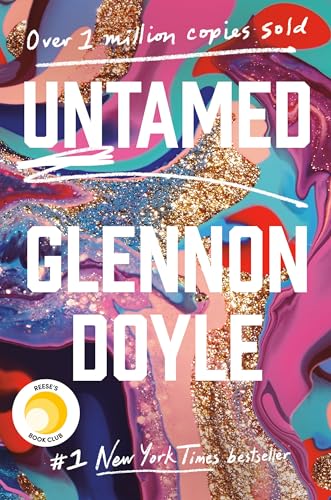
I spent quite some time finding my “fit” in academia. It took me 16 years to get tenure. I stayed true to myself, and, as Glennon would call it, my “knowing.” My career is part of my identity, but so is being a daughter, a sister, a wife, and a mother. I live untamed.
Matthew Braun (Law Library)
The Complete Beatles Recording Sessions by Mark Lewisohn

I have a great appreciation of the music, art, innovation, and perseverance of The Beatles. I also have a great appreciation of minutia. Ergo, this book.
Timothy Bretl (Aerospace Engineering)
Dune by Frank Herbert

I love this book and have returned to it every five or ten years since I was a child. It takes me out of day-to-day and reminds me of dreams I have never lost.
Nerissa Brown (Accountancy)
Sprat Morrison by Jean D’Acosta

Sprat Morrison is a classic Jamaican novel for young readers by Jean D’Acosta, a renowned Jamaican writer and professor emeritus of Hamilton College in New York. This book and many other Caribbean classics fueled my passion for reading as a young learner in Jamaica.
Eun Jeong Cha (Civil & Environmental Engineering)
The Perception of Risk by Paul Slovic
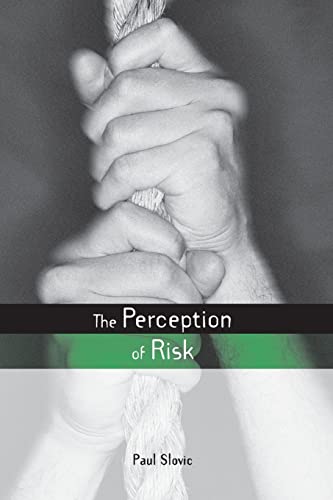
This book introduces bounded rationality in risk evaluation. I read this book in my early career, was fascinated by the topic, and still study it.
Laura Christianson (Crop Sciences)
Wastewater Engineering: Collection, Treatment, Disposal by George Tchobanoglous
This textbook was used by my PhD advisor in his course that changed the direction of my life. My personnel copy is now threadbare as a testament to mentorship, creativity, and fulfilling a destiny. I wish many happy page turns to all readers.
Valerie Cintron (School of Social Work)
Sirena Selena vestida de pena by Mayra Santos-Febres
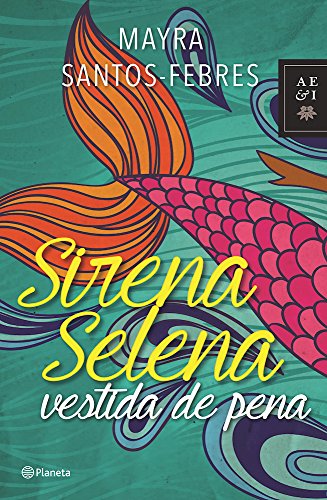
This book reminds me of “Solidaridad y Justicia,” a community social work strategy using art as a tool of empowerment. A transgressive work that defines and re-imagines Puerto Rican culture, exploring nuanced layers of the intersectionality of sexuality, race, trans identity, gender, and colonial status by celebrating the experience of Otherness.
Kathryn Clancy (Anthropology)
Lessons from Plants by Beronda Montgomery

Dr. Montgomery shows us the kind of care, attention, and community possible when we look to other living beings for inspiration. Montgomery’s own writing, mentoring, and research also offer inspiration to other science faculty in how to collaborate, care, and be scholars.
Amy Cohen (Psychology)
The Kissing Hand by Audrey Penn
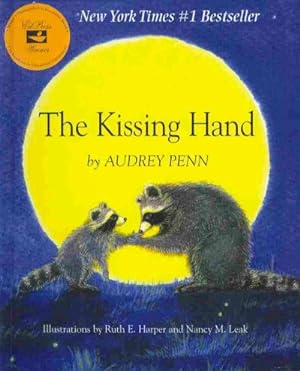
This book is about how the gift of love encourages us to persevere. It is dedicated to Harrison, Jameson, & Rosalie, who’ve carried my heart in their hands since the day they were born. To children with autism, who are loved just as they are. And to Joey, who never let me forget it.
Jonathan Coppess (Agricultural & Consumer Economics)
Fear Itself: The New Deal and the Origins of Our Time by Ira Katznelson
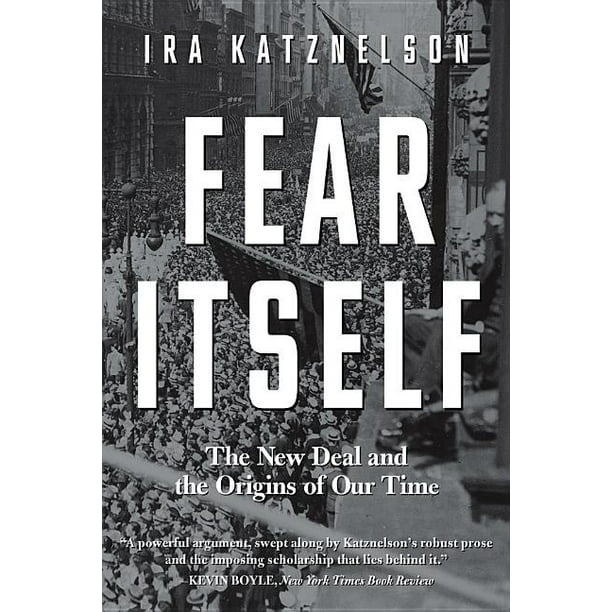
This book specifically and Dr. Katznelson’s work more generally have played an important role in my research and writing. Additionally, the New Deal era and how it has shaped political development is critical for understanding American policy.
Catherine Corr (Special Education)
Life Doesn’t Frighten Me by Maya Angelou
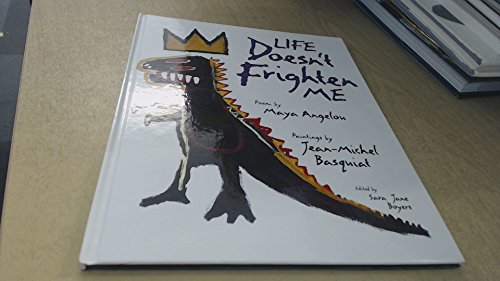
I was introduced to this children’s book in one of my first undergraduate education courses. It was the first time I thought about the ways in which the world can “frighten” children and how I, as an educator, could counteract that.
Partha Dey (Mathematics)
An Introduction to Probability Theory and Its Applications by William Feller

This is the first book on Probability I read after high school that sparked my interest in Probability and helped me form intuition behind the beautiful analysis of random processes. It encouraged me to pursue mathematics as a profession.
Anna Dilger (Animal Sciences)
Outlander by Diana Gabaldon

I stumbled upon this book while studying abroad and feeling lost and lonely. This book made my worries melt away. That’s the power of good books. They capture your mind and ease your heart. I will be forever grateful this book and the others that see me through stressful times.
Florin Dolcos (Psychology)
Alex’s Guide to Night Sky Misconceptions by Alex Dolcos

This book has been a great inspiration for me at a time when I was in search of new ways to reignite my passion for scientific discoveries. It made me realize that “shooting for the stars” (literally!) is a goal that can be instilled in anyone, and this book is a great starting point.
Francina Dominguez (Atmospheric Sciences)
An Ocean of Air by Gabrielle Walker

Life on Earth as we know it would not exist without the atmosphere. Oxygen, Carbon Dioxide, Ozone..all play an important role. Gabrielle Walker writes a beautiful story about how we came to understand our atmosphere and how maintaining its balance it is critical for our survival.
Peter Dragic (Electrical & Computer Engineering)
From Immigrant to Inventor by Michael Pupin

This is an autobiography of a boy who came to the United States from Serbia with nothing. He went on to became one of the greatest scientists and professors of the early 20th century. Among his students were Nobel prize winners (Millikan) and nominees (Armstrong). It is an inspirational story that is timeless.
Christopher Evans (Materials Science & Engineering)
The Way Things Work by David Macaulay

This book was an early inspiration for me to pursue an understanding of how things work. This early exposure to engineering started me on the path to my academic career.
Jeffrey Filippini (Physics)
The Hitchhiker’s Guide to the Galaxy by Douglas Adams

The first science fiction I read (far too young for a few jokes), and a great favorite of my late father’s. A humorous take on the wonder and absurdity of the universe and its residents, and a reminder that the ultimate answer (42) is not nearly so important as the process of seeking it.
John Gallagher (English)
Update Culture and the Afterlife of Digital Writing by John Gallagher

I spent five years writing this book and I hope future students are able to read it!
Abhijeet Ghosal (Business Administration)
Pagla Dasu by Sukumar Roy

I read this book as a child, and this was my first introduction to rich Bengali literature. The specialty of this book is that it is very easy to read and has very funny stories. This book is loved by generations of people in the Bengal region of India.
Robyn Gobin (Kinesiology & Community Health)
The Self-Care Prescription: Powerful Solutions to Manage Stress, Reduce Anxiety, and Increase Well-Being by Robyn Gobin

My deepest desire is for my work to improve the lives of others, particularly those with marginalized identities. Writing The Self-Care Prescription allowed me to intentionally share psychological knowledge and evidence-based tools with a broader, non-scientific audience. This book is meaningful because it represents me living in alignment with my values.
Mani Golparvar Fard (Civil & Environmental Engineering)
Productivity Improvement in Construction by Clarkson Hill Oglesby

This book transformed my view on how productivity can be an improvement in construction projects.
Santiago Gutierrez-Nibeyro (Veterinary Clinical Medicine)
Monday Mornings: A Novel by Sanjay Gupta, MD
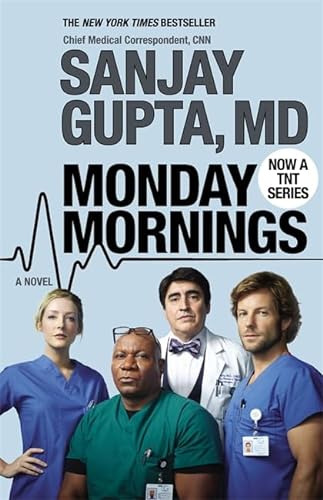
This Novel provides a unique look at the real method in which surgeons learn through their mistakes and learn how to deal with adversity. As a veterinary surgeon that train residents and young surgeons I find myself very identified with this great novel.
Katy Heath (Plant Biology)
The Botany of Desire by Michael Pollan

I love plants and I love food. Few people have done more to promote plants (as food and more) than Pollan. This book exemplifies how awareness of our natural world and the importance of plants in that world can be raised with wit and compelling human stories.
Anil Hirani (Mathematics)
Visual Differential Geometry and Forms: A Mathematical Drama in Five Acts by Tristan Needham

Differential geometry is a very visual subject. This author develops it with lots of pictures which helps to build intuition. This book came out in 2021 and is destined to become a classic. I wish I had this book when I was first learning the subject.
Irvin Hunt (English)
Frank: Sonnets by Diane Seuss
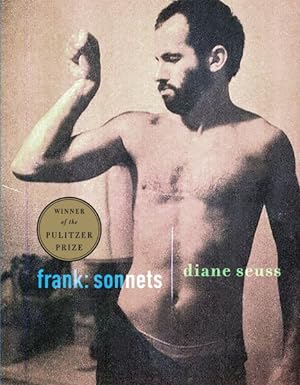
Here’s a Midwestern writer that will remind us of all the secret and quiet beauties of this landscape, this life, and that very Midwestern way of leaning into letting things go awry. “The sonnet, like poverty,” she says, “teaches you what you can do without.” That includes, at the very least: perfection.
Raluca Ilie (Electrical & Computer Engineering)
The Second Sex by Simone de Beauvoir
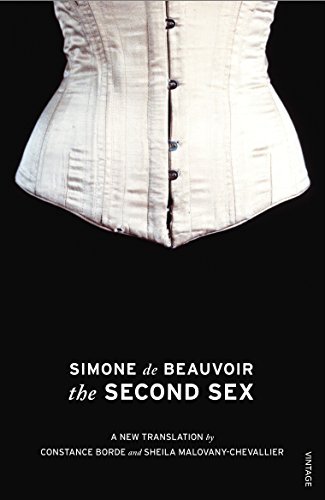
This book has led me to develop a love for thought as a young woman, and to challenge the cognitive distortions about the women condition in society. “Today I can recognize that, bolstered by my soul and its harmonious powers, I have lived to the sound of my voice.”
Justine Karduck (Food Science & Human Nutrition)
Motivational Interviewing in Nutrition and Fitness by Dawn Clifford and Laura Curtis

I use this book in my FSHN 329 Communication in Nutrition classes. Based on the principles of partnership, acceptance, absolute worth, accurate empathy, autonomy, affirmation, compassion, and evocation, this book guides the reader on not only how to be a better counselor but also how to be an empathetic communicator in everyday conversations.
Natalie Lira (Latina/Latino Studies)
Undivided Rights: Women of Color Organize for Reproductive Justice by Jael Silliman, Marlene Gerber Fried, Loretta Ross, & Elena Gutierrez
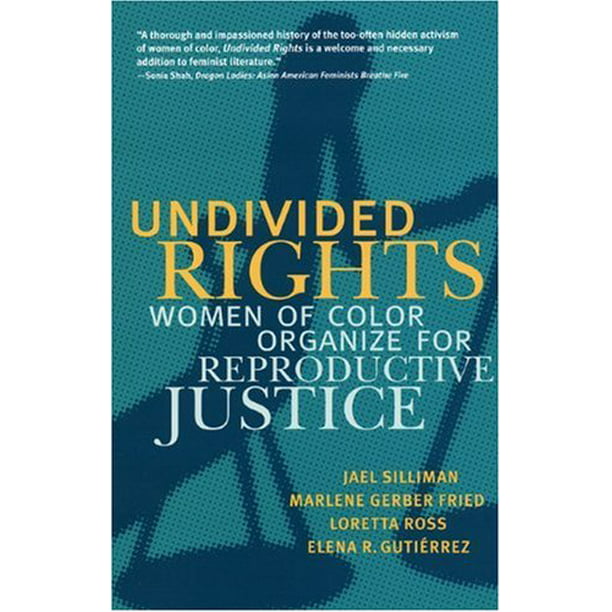
“Undivided Rights” outlines how women of color organized and established the liberatory framework of Reproductive Justice. Authored by leaders in the movement for reproductive freedom, the book outlines interrelated histories of reproductive oppression women of color have faced. At the same time, it illustrates how women of color advocated for and gained reproductive autonomy.
Jessica Madson (Food Science & Human Nutrition)
A Tree Grows in Brooklyn by Betty Smith
![Paperback A Tree Grows in Brooklyn [75th Anniversary Ed] (Perennial Classics) Book](https://m.media-amazon.com/images/I/41HH0qsYzBL._SL350_.jpg)
This book resonated with me and I often use the lessons to guide me through life. Taking place in the 1900s, this book reminds us of lessons still applicable today, if not more. Humility, humanity, honesty, and gratitude, just to name a few. Specifically important to me include the appreciation for music, reading, and education.
Lavanya Marla (Industrial & Enterprise Systems Engineering)
Universal Message of the Bhagavad Gita: An Exposition of the Gita in the Light of Modern Thought and Modern Needs by Swami Ranganathananda

These books present a wonderfully accessible interpretation of Indian philosophy and Sanatana dharma. The book is transcribed from lectures given by the author, in which he links the daily experiences of humans to their deeper spiritual aspects. This book has given me deeper insights each time I have read it.
Nenad Miljkovic (Mechanical Science & Engineering)
Absolute Zero and the Conquest of Cold by Tom Shachtman

Absolute Zero and the Conquest of Cold demonstrates how thermal science produced astonishing scientific insights and applications that have revolutionized civilization. It also illustrates how scientific advancement, fueled by fortuitous discoveries and the determination of individuals, shapes our understanding of and relation to the world.
Sasa Misailovic (Computer Science)
Orlovi rano lete by Branko Copic

“Eagles fly early” is an iconic story about friendship and growing up in the face of adversity. A group of children utilizes the experience from their pre-war frolics to save their village from the occupiers during WWII. Written by the most respected children’s author in Yugoslavia, this book has been admired by generations of children.
Issam Moussa (Clinical Sciences)
The Extended Mind: The Power of Thinking Outside the Brain by Annie Murphy Paul

I have a deep fascination with the mental processes of creativity. This book sheds light on the science of “soft fascination” and how creativity is born when we’re not focusing on being creative!
Ghassan Moussawi (Gender & Women’s Studies)
On Earth We’re Briefly Gorgeous by Ocean Vuong
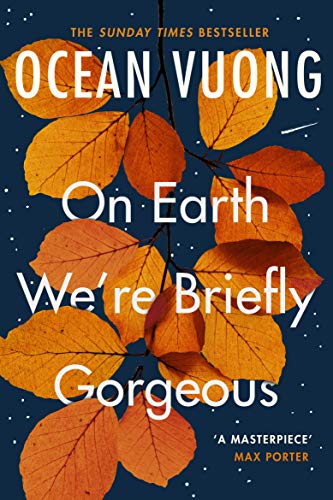
Heartbreaking, lyrical, and beautiful book about the refugee experience, relocation, migration, love, queerness. One of my favorite books that has inspired me to think and reflect differently about writing practices, affect, changing meanings of love and loss.
Ujjal Mukherjee (Business Administration)
Gitanjali by Rabindranath Tagore

I have always been deeply inspired and energized by the works of Tagore. Throughout my growing up years and beyond, Tagore’s poems have been a constant companion to me on life and love; at times of happiness and despair. My most cherished of Tagore’s poems is “Where the mind is without fear” from Gitanjali.
Eunmi Mun (Labor & Employment Relations)
Getting to Diversity: What Works and What Doesn’t by Frank Dobbin and Alexandra Kalev
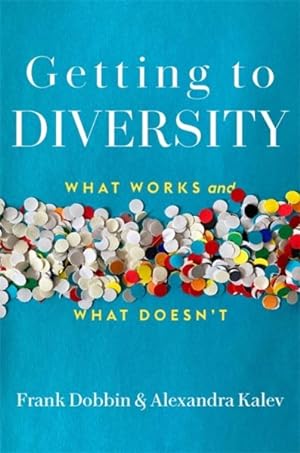
This book is written by scholars who have established the field of research I am now actively participating. Bringing together decades of research on the issue of diversity at the workplace, this book leaves a deep impact for scholars and practitioners who are devoted to addressing inequality and diversity issues at the workplace.
Christopher Napolitano (Educational Psychology)
Japan’s Green Monsters: Environmental Commentary in Kaiju Cinema by Sean Rhoads and Brooke McCorkle

This book is co-written by my best friend, Sean Rhoads. Sean recently completed his PhD in English from Queen’s University in Canada. He is an exemplary friend, and I am a little jealous that he gets to write about sci-fi for a living.
Naveennaidu Narisetty (Statistics)
Be As You Are: The Teachings of Sri Ramana Maharshi by David Godman

The life and teachings of Sri Ramana Maharshi, also known as the silent sage of Arunachala, reveal that he is absolute knowledge and universal love personified. These teachings have a great influence on my perspective and work. David Godman beautifully edited and organized them with the core message as the title- Be As You Are.
Luc Paquette (Curriculum & Instruction)
Mind Bugs: The Origins of Procedural Misconceptions by Kurt VanLehn

This book was a great source of inspiration for my PhD work. It guided me in my initial reflections about how the actions that learners make when engaging in educational activities is informed by their understanding of a topic and how we can study those actions to better support learners.
Nicholas Paulson (Agricultural & Consumer Economics)
The Fault Lines of Farm Policy by Jonathan Coppess

Analysis of changes to recent Farm Bills has been a main focus of my research and outreach programs. I hope my work, at times, has helped shape the debate. In this book, my colleague and friend documents the long and fascinating history of this puzzling piece of legislation.
Maxim Raginsky (Electrical & Computer Engineering)
Process and Reality by Alfred North Whitehead

In this book, Alfred North Whitehead presented his process philosophy, which posits an eternally unfolding Universe as a constantly evolving network of interconnected space-time events. Reading this difficult yet thought-provoking book and reflecting on its numerous messages was a major source of comfort for me during the two years of the COVID-19 pandemic.
Felisa Reynolds (French & Italian)
Moi, Tituba sorcière noire de Salem by Maryse Condé

In graduate school I read Maryse Condé’s opus and it is no exaggeration to say that it changed my life. Moi, Tituba introduced me to a rich and beautiful world of literature in French, from *outside* France. After, it became my mission to teach francophone literature, and to decry the lasting effects of colonization.
Kevin Richards (Kinesiology & Community Health)
Zen and the Art of Motorcycle Maintenance: An Inquiry Into Values by Robert Pirsig
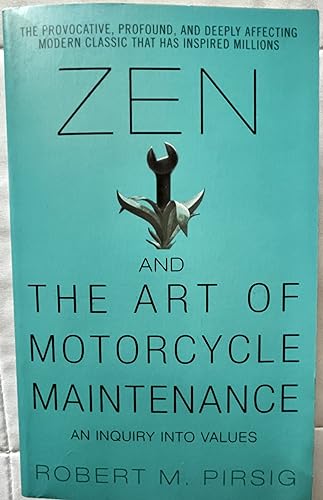
I first read Zen and the Art of Motorcycle Maintenance in a graduate course taught by William Harper at Purdue University as a doctoral student. It changed the way that I saw the world more than anything I had read previously and continues to shape my identity as an academic.
Stacey Robinson (Art & Design)
I am Alfonso Jones by Tony Medina

I am Alfonso Jones has been credited as the first “Black Lives Matters” inspired graphic novel. Since it’s October 2017 release the relevancy of the book still provides parents, educators, and readers verbal and visual entry as primer to address the difficulties involved in police brutality and those affected.
Simon Rogers (Chemical & Biomolecular Engineering)
The Phenomenological Theory of Linear Viscoelasticity by Nicholas Tschoegl

This text appears daunting, but chapter 9 in particular presented such clarity to many of the problems I’d been working on that solutions became clear.
Joshua Rovey (Aerospace Engineering)
Getting What You Came For: The Smart Student’s Guide to Earning an M.A. or a Ph.D. by Robert Peters
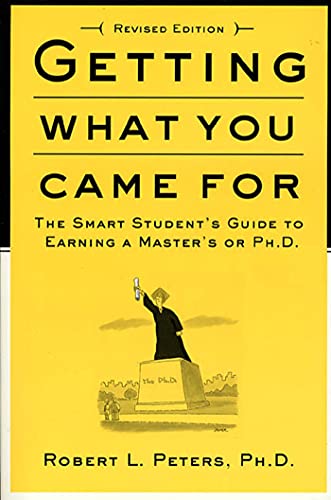
A peer pointed me to this book when I was considering and planning for graduate school. True to its promise, this book helped me to “finish in less time, for less money, and with less trouble”.
Erik Sacks (Crop Sciences)
Flora of the Voynich Codex by Arthur Tucker and Jules Janick
Plant science, art and history collide to help solve an enduring mystery, and makes for a fun read. In this book, Janick and Tucker beautifully demonstrate how we can use multiple types of evidence to better understand how people in the past interacted with plants, a methodology our own Jack Harlan strongly advocated.
Sepideh Sadaghiani (Psychology)
Expansion and Contraction Within Being: Dahm by Salaheddin Ali Nader Angha

Can we lift the apparent divide between spirituality and science? This masterpiece by the Sufi Master Nader Angha explains the mechanisms of the human spiritual experience based on universal principles of life in shockingly concrete scientific language. It informs my research, giving me hope that experimental science will have a profound constructive impact on society.
Kari Sanderson (Law)
The Song of the Lark by Willa Cather

Thea Kronberg’s journey resonates with me – geographically and personally.
Stephanie Sanders-Smith (Curriculum & Instruction)
I Learn from Children: An Adventure in Progressive Education by Caroline Pratt

Pratt’s beautiful story of the founding of a school that empowers children has inspired who I am as a researcher and educator. I come back to it over and over to remember what the work of teaching can be when we trust children.
Jodi Schneider (Information Sciences)
Other Floors, Other Voices: a Textography of a Small University Building by John Swales
I love this book, because it’s a light read from a quirky project: studying one academic building’s people, work, and texts. It reassures me of the power of bricolage: John Swales’ “textography” combines ethnography and textual analysis, two approaches I’ve drawn on. And it reinforces my appreciation of science studies as an inherently interdisciplinary field.
Chenhui Shao (Mechanical Science & Engineering)
Introduction to Statistical Quality Control by Douglas Montgomery

Balancing between theory and practice, this book serves a wide range of readers who are interested in quality control and management. I’ve been reading this book since when I was a Ph.D. student, and I still use it in my research and teaching.
Sanjiv Sinha (Mechanical Science & Engineering)
Satyendra Nath Bose : His Life and Times : Selected Works (with commentary) by Kameshwar Wali

Generational talents like Bose kindled India’s scientific research enterprise. Fueled by little more than a passion to contribute to science at the highest level, this story of success against all odds is interesting for its unexpectedness. I, an “end user” of Bose’s work, find it inspirational.
Matthew Stasiewicz (Food Science & Human Nutrition)
Factfulness: Ten Reasons We’re Wrong About the World–and Why Things Are Better Than You Think by Hans Rosling, Anna Rosling Rönnlund, & Ola Rosling
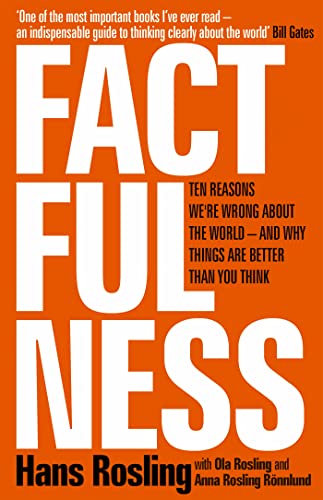
Dr. Rosling lead the gapminder.org effort to let anyone plotting basically any public world development data set any other. This book uses those data to correct what many people believe, but are false. I hope that one data we have similarly clear resources for food safety.
Chadly Stern (Psychology)
Jerks at Work: Toxic Coworkers and What to Do About Them by Tessa West
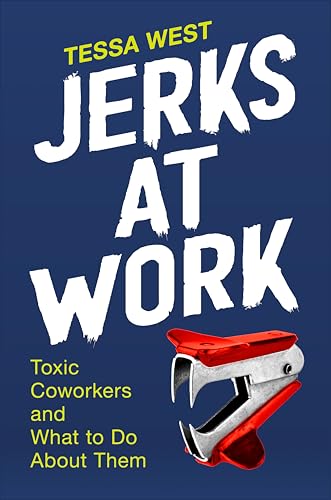
An excellent compendium of advice from my doctoral mentor on how to deal with challenging people in the workplace and beyond. I heard much of the wisdom in this book during my time as a graduate student and hope that others now find it useful.
Kevin Tan (Social Work)
Love’s Executioner and Other Tales of Psychotherapy by Irvin Yalom

My career began as a school social worker. Love’s Executioner was the first book that I read after I began my practice. Today, it reminds me of the many young people and families that I have worked with who inspires me for what I do.
Joaquin Vieira (Astronomy)
3K: The Cosmic Microwave Background Radiation by R.B. Partridge

This book is one of the only texts in my specific subfield and the most relevant to my thesis work and later career.
Miranda Vieson (Veterinary Clinical Medicine)
Quiet: The Power of Introverts in a World That Can’t Stop Talking by Susan Cain
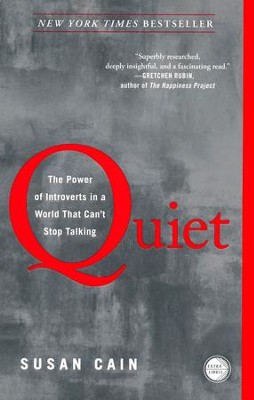
I read this after taking my pathology board examination and while finishing my PhD. It continues to resonate with me in many facets of my life.
Sophie (Xiaofei) Wang (Mechanical Science & Engineering)
Sapiens: A Brief History of Humankind by Yuval Noah Harari
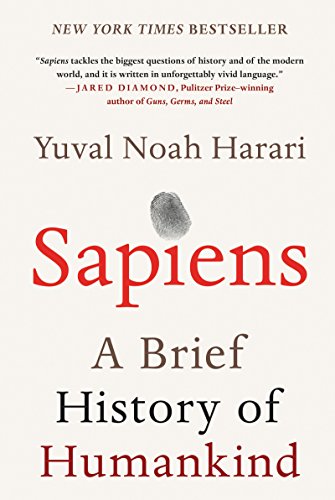
This book is fun to read, providing a unique view for us to better understand ourselves. While we take pride in our societal and technical advances, it is still necessary to respect nature and stay humble in our relationships with the ecosystems around us.
Andrew Weaver (Labor & Employment Relations)
We Don’t Know We Don’t Know by Nick Lantz
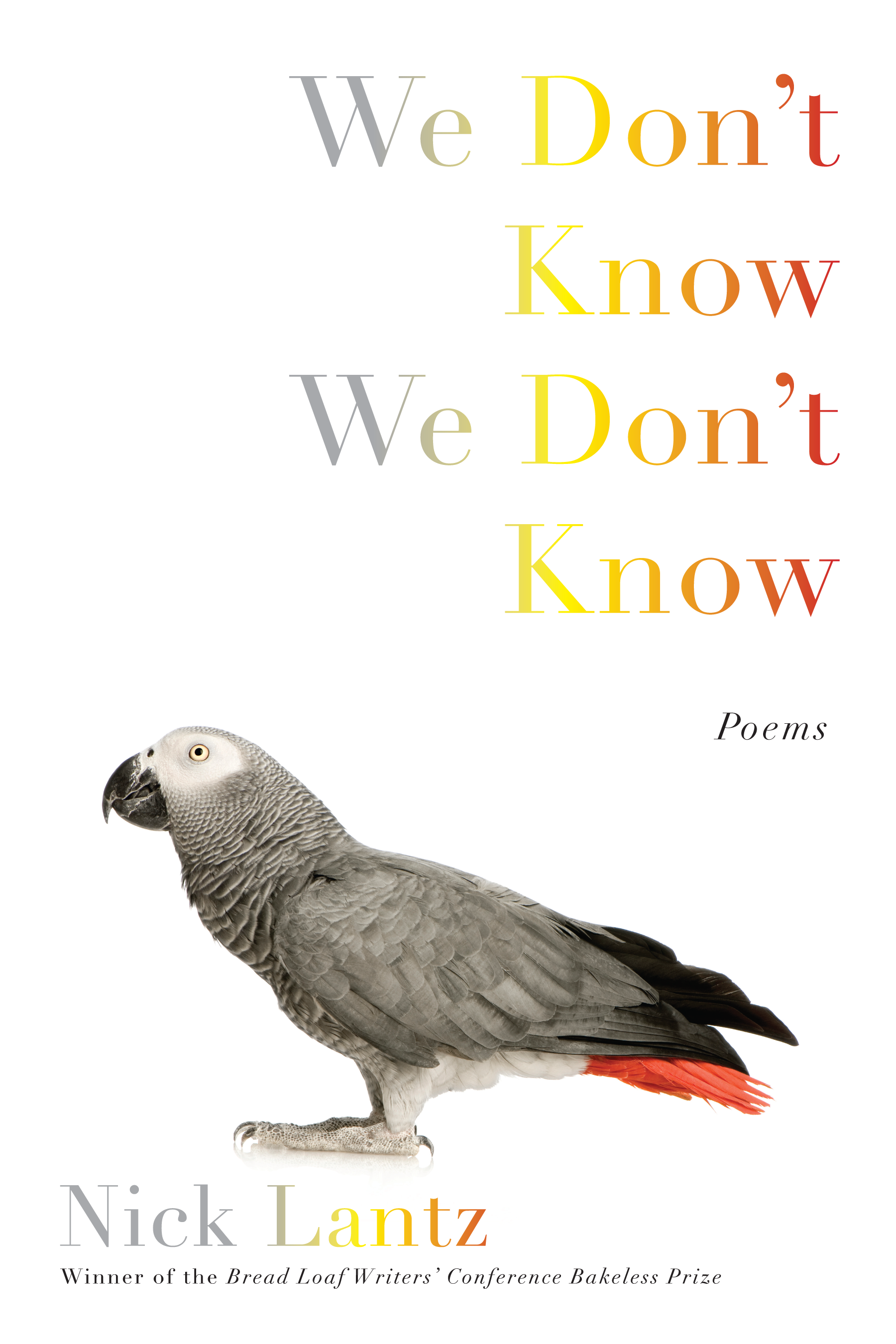
These poems (humorously) promote the need for humility in the pursuit of knowledge. Somehow, they attack false certitude and defend the ethical enterprise of seeking the truth without resorting to cynicism. I’ve found them helpful.
Christopher Weaver (Philosophy)
Warranted Christian Belief by Alvin Plantinga

By his example, Alvin Plantinga showed me how to think rigorously about the Christian faith.
Roderick Wilson (History)
The Organic Machine: The Remaking of the Columbia River by Richard White

Richard White’s Organic Machine inspired me and a generation of students to reconsider how we think and write about the relationship between people and the places they live. In doing so, it helped to change the field of environmental history. I hope this book will continue to be read and influence future generations of students.
Yufeng Wu (Finance)
The Remains of the Day by Kazuo Ishiguro

The book that helps me to reflect upon my life and career, realize the regretful things done in the past, and come to terms with them.
Yun Yang (Statistics)
Asymptotic Statistics by A.W. van der Vaart
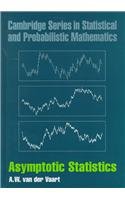
This is a great textbook with excellent coverage of topics from classical mathematical statistics to modern empirical processes and their applications. It provides extremely useful results and tools to an applied or a theoretical statistician, and has a tremendous impact on my own thinking and research.
Yun Kyu Yi (Architecture)
The Architecture of the Well-Tempered Environment by Reyner Banham

This book introduces me to my research area. The book discusses the impact of the environmental system on architecture and architects.
Ruoqing Zhu (Statistics)
The Lady Tasting Tea: How Statistics Revolutionized Science in the Twentieth Century by David Salsburg

My father introduced this book to me when I was doing my Masters. Fisher’s story always reminds me of how a simple but intelligent idea could transform the way people study science.
Julie Zilles (Crop Sciences)
Braiding Sweetgrass Indigenous Wisdom, Scientific Knowledge, and the Teachings of Plants by Robin Wall Kimmerer

I love this book for its beautiful language and hopeful vision, for the ways it resonates with me as a mother and a scientist, and for what it continues to teach me about Indigenous wisdom and the ways in which our systems exclude.
Images from the Bookplate Event
